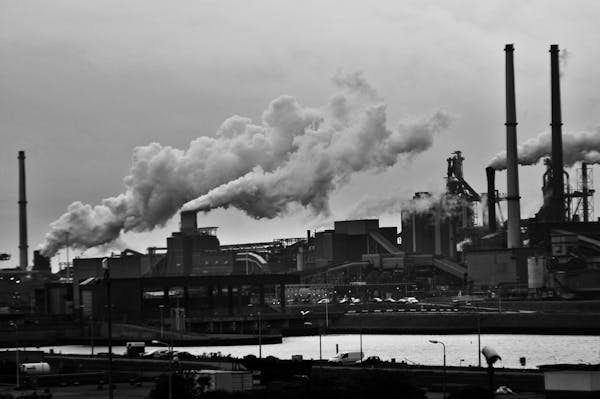Title: The Industrial Revolution in England: Its Literary and Social Impact
The Industrial Revolution, a profound transformation that unfolded in England during the late 18th and early 19th centuries, was a watershed moment in history. It brought about seismic changes in society, economy, and culture, leaving an indelible mark on the world. This note explores the literary and social impact of the Industrial Revolution in England.
1. Social Impact:
Urbanization: The Industrial Revolution prompted the rapid growth of cities, as people flocked to industrial centers in search of work. This urbanization led to crowded and often squalid living conditions, inspiring writers and social reformers to highlight the plight of the urban poor. Charles Dickens, in novels like "Oliver Twist" and "Hard Times," vividly depicted the harsh realities of urban life.
Class Divide: The era saw a stark divide between the newly wealthy industrialists and the working class. The emergence of the factory system resulted in labor exploitation, leading to social unrest and the formation of workers' movements. This socioeconomic disparity became a central theme in literature, as seen in Elizabeth Gaskell's "North and South."
Child Labor: The use of child labor in factories and mines shocked the public. Writers like Charles Kingsley ("The Water-Babies") and Lewis Carroll ("Alice's Adventures in Wonderland") incorporated social criticism into their works, shedding light on the plight of children.
Public Health and Sanitation: As cities expanded, concerns about public health and sanitation grew. Novels like "Bleak House" by Charles Dickens exposed the dire state of public health, contributing to the push for sanitation reform.
2. Literary Impact:
Realism and Social Commentary: The Industrial Revolution fueled the rise of realism in literature, where authors sought to depict society as it truly was. Writers like Thomas Hardy ("Tess of the d'Urbervilles") and George Eliot ("Middlemarch") used their works to provide incisive social commentary on the changes brought by industrialization.
Science and Technology: The advancement of science and technology during the Industrial Revolution influenced literature. Mary Shelley's "Frankenstein" exemplifies the apprehensions about unchecked scientific progress.
Romantic Reaction: In response to the perceived dehumanizing effects of industrialization, the Romantic Movement emerged. Poets like William Blake ("Songs of Innocence and Experience") critiqued the mechanization of society and celebrated nature and the individual spirit.
Protest Literature: As social issues intensified, protest literature became prominent. The Chartists and other reform movements used literature to convey their demands. Thomas Paine's "The Rights of Man" and the poetry of William Wordsworth ("The Prelude") are notable examples.
Short Fiction: The rise of the periodical press and the demand for short, accessible stories gave birth to short fiction. The works of the Brontë sisters and Charles Dickens, serialized in magazines, gained immense popularity.
3. Legacy and Enduring Influence:
The Industrial Revolution's impact on literature and society has left a profound legacy. Realist and social novels of the period continue to be studied for their historical and social insights.
The social issues raised during the Industrial Revolution, including labor rights, child labor, and workplace safety, played a crucial role in shaping modern labor laws and regulations.
In conclusion, the Industrial Revolution ushered in a new era of literature and social awareness. It offered writers fresh thematic material and provoked them to engage in social critique. Simultaneously, it brought about profound social transformations, with lasting implications for labor, urbanization, and social activism. The Industrial Revolution remains a critical turning point in both literary and social history, a testament to the power of technology to reshape the human experience.
